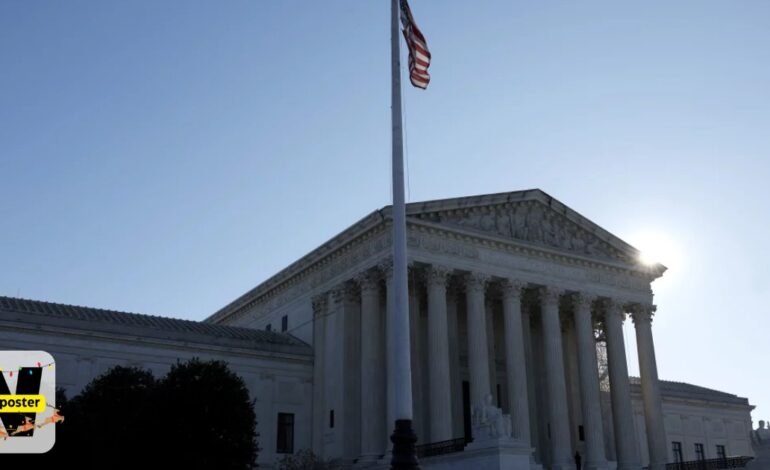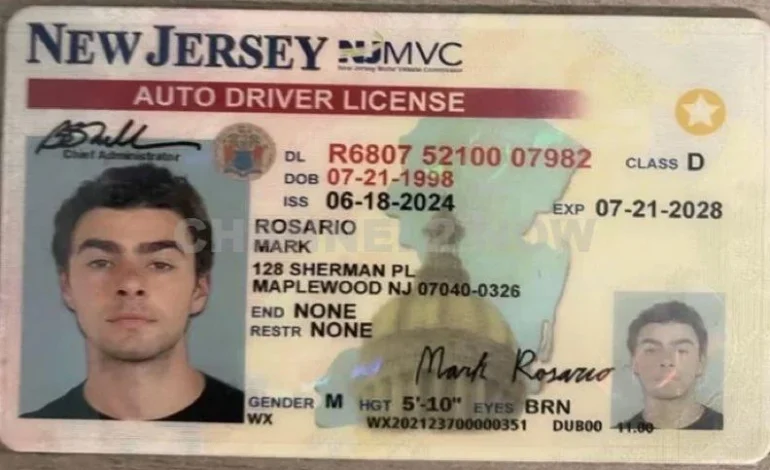
U.S. Supreme Court Declines to Hear Challenge Against Boston’s Zip Code-Based School Admissions Policy
U.S. Supreme Court Declines to Hear Challenge Against Boston’s Zip Code-Based School Admissions Policy: Controversy Over Alleged Discrimination Against Asian American and White Students
The Supreme Court of the United States has declined to review a controversial challenge to Boston’s public school admissions policy, which uses neighborhood zip codes as a significant factor in determining student placements in its three prestigious “exam schools.” This decision leaves intact a policy that has been the subject of intense legal battles and heated public debate over race, equity, and meritocracy. The case marks another pivotal moment in the national conversation about the future of educational admissions policies, particularly following the Supreme Court’s landmark ruling in 2023 that effectively ended affirmative action in higher education.
The Policy at the Heart of the Debate
In 2021, the Boston School Committee overhauled the admissions criteria for Boston Latin School, Boston Latin Academy, and the John D. O’Bryant School of Mathematics and Science—three of the city’s most academically competitive public schools. Previously, admissions to these schools were primarily based on a combination of standardized test scores and grade point averages (GPAs). However, the revised policy removed standardized testing and introduced a system that allocated seats by neighborhood population. Under the new policy, seats are reserved for students with the highest GPAs within each zip code, with the number of available seats determined by the proportion of school-age children living in that area.
Proponents of the policy argued that it was designed to address long-standing disparities in access to elite educational opportunities across Boston’s racially and socioeconomically diverse neighborhoods. Critics, however, claimed that the policy disadvantaged certain racial and ethnic groups, particularly Asian American and white students, who historically have been overrepresented in the exam schools.
The Legal Challenge and Allegations of Discrimination
The Boston Parent Coalition for Academic Excellence, a group advocating for a merit-based admissions process, filed a lawsuit against the city, alleging that the new policy amounted to racial discrimination. The coalition contended that the zip code-based system was implemented to suppress the representation of Asian American and white students in favor of Black and Hispanic students.
As part of their case, the coalition presented evidence of allegedly discriminatory remarks made by Boston School Committee members. One widely reported incident involved committee member Lorna Rivera, who was accused of mocking Asian names during a meeting. Another committee member, Alexandra Oliver-Dávila, was criticized for leaked text messages that purportedly expressed hostility toward white residents of Boston neighborhoods like West Roxbury. These controversies fueled allegations that the policy was motivated by racial animus rather than a genuine effort to improve educational equity.
Court Rulings and Supreme Court’s Refusal to Intervene
In a key ruling, the First Circuit Court of Appeals rejected the coalition’s claims, concluding that there was insufficient evidence to prove that the policy disproportionately harmed Asian American and white students. The court noted that despite the policy changes, students from these groups continued to secure more seats than their share of the applicant pool would suggest. The appellate court also upheld the School Committee’s assertion that the policy was race-neutral, as it relied solely on geographic factors rather than explicitly considering race.
The Boston Parent Coalition appealed to the Supreme Court, seeking to overturn the appellate court’s decision. However, the Supreme Court declined to take up the case, effectively upholding the lower court’s ruling. Justices Samuel Alito and Clarence Thomas dissented, with Alito calling the policy “racial balancing in disguise” and warning that it violated constitutional principles by indirectly prioritizing certain racial groups over others.
Voices of the Community: Advocates and Critics Speak Out
The Supreme Court’s decision has elicited strong reactions from both supporters and opponents of the policy. Advocates for the admissions system, including civil rights groups and local community leaders, have hailed the ruling as a victory for equity in education.
“Boston’s zip code-based admissions policy is a step toward dismantling systemic barriers that have historically excluded students from underprivileged neighborhoods,” said Tanisha Sullivan, president of the Boston NAACP. “This decision affirms the principle that all children deserve a fair shot at accessing the city’s best educational opportunities, regardless of their zip code.”
Opponents, however, have expressed disappointment and concern over what they view as a departure from meritocracy. Jessica Tang, president of the Boston Teachers Union, acknowledged the complexities of the issue but criticized the policy for potentially penalizing high-achieving students in wealthier neighborhoods.
Broader Implications for Educational Policy
The Supreme Court’s refusal to review the case comes amid a broader national debate over the role of race and geography in education. Following its 2023 ruling that struck down affirmative action in college admissions, the Court has shown a general reluctance to intervene in cases involving K-12 education, leaving states and municipalities to navigate these contentious issues on their own.
Legal experts have noted that the Boston case could serve as a blueprint for other cities grappling with similar challenges. “This decision underscores the growing tension between efforts to promote diversity and the legal constraints surrounding race-conscious policies,” said Professor Kimberly Jenkins, a constitutional law scholar at Harvard University. “As we move forward, we can expect more cases like this to test the boundaries of what is permissible under the law.”
Personal Stories: The Students and Families Affected
The policy change has had a profound impact on students and families across Boston. Sarah Lin, an Asian American eighth-grader from West Roxbury, was one of many students who experienced the effects firsthand. Despite earning top grades at her middle school, Sarah narrowly missed admission to Boston Latin School due to the limited number of seats allocated to her neighborhood.
“I worked so hard, and it feels like my effort didn’t matter,” Sarah said. Her mother, Mei Lin, echoed her frustration. “We support diversity, but this policy doesn’t feel fair. It feels like they’re punishing kids for living in the wrong neighborhood.”
On the other side of the spectrum is Carlos Ramirez, a student from Dorchester who gained admission to Boston Latin Academy under the new policy. “This opportunity means everything to me and my family,” Carlos said. “For the first time, kids from my neighborhood have a real chance to go to these schools.”
The Path Forward: Balancing Equity and Meritocracy
As the debate continues, Boston faces the challenge of finding a balance between equity and meritocracy in its admissions policies. Mayor Michelle Wu has expressed her commitment to ongoing dialogue and collaboration with stakeholders to refine the system.
“Boston’s strength lies in its diversity, and our schools should reflect that,” Wu said in a statement. “We remain dedicated to creating a system that is fair, transparent, and inclusive for all students.”
Conclusion
The Supreme Court’s decision to decline the Boston admissions case leaves unresolved questions about the future of educational equity in America. While the ruling allows Boston to continue its zip code-based policy, it also highlights the complexities of addressing historical inequities without creating new forms of disparity. For students like Sarah Lin and Carlos Ramirez, the debate is not just about policies—it’s about their futures and the opportunities that shape their lives. As Boston and other cities navigate these challenges, the nation will be watching closely to see how the story unfolds.



